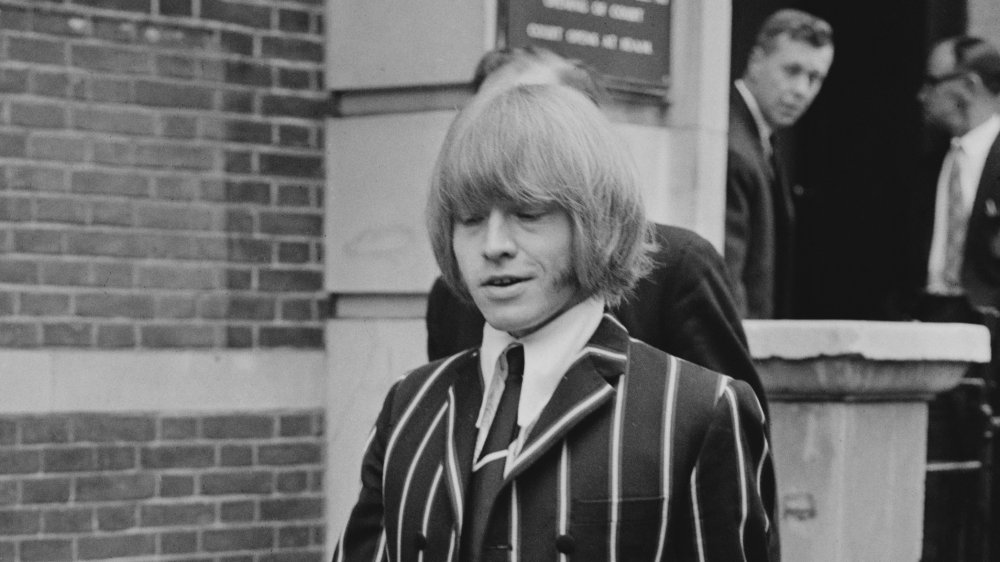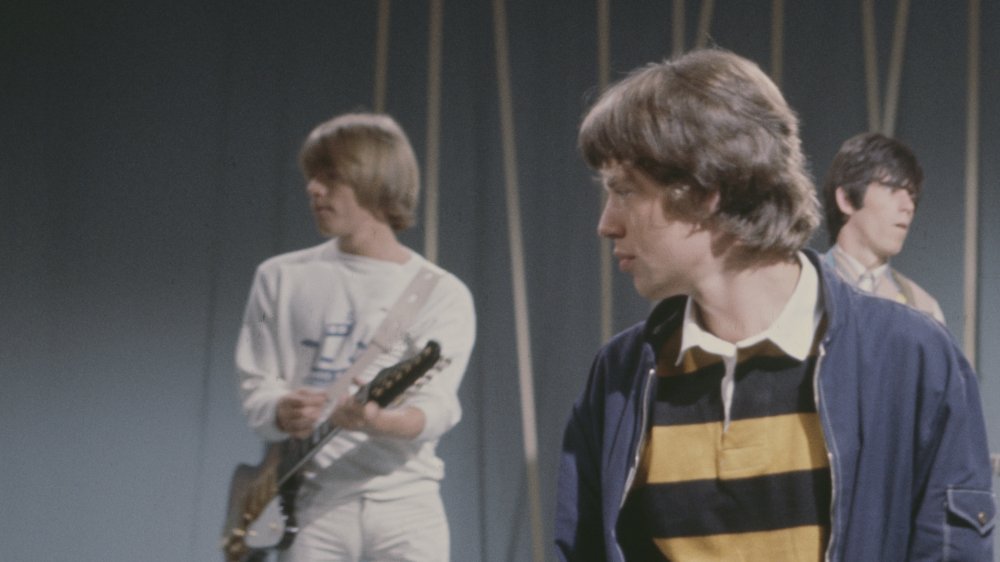The Real Reason Brian Jones Left The Rolling Stones
Take a moment to let the following sentence sink in: One time, Keith Richards fired a guy for doing too many drugs.
That oversimplification might be the best introduction to the enigma that was Brian Jones' brief career. Jones founded the Rolling Stones, he gave them their name, he scouted their talent. He was a brilliant multi-instrumentalist, playing guitar, sitar, piano, marimba, harmonica, recorder, saxophone, and drums during Stones recording sessions and concerts. He also wasn't crazy about where he ended up. In a 1965 interview featured in the documentary Crossfire Hurricane, Jones described life as a pop star as leaving him "not really sort of satisfied, either artistically or personally."
That inability to get no satisfaction was evident in Jones' behavior towards his fellow bandmates. His frustrations seemed to reach new heights on a regular basis: Mick Jagger and Keith Richards took the spotlight while Jones was left in the shadows. The band came under new management, relegating Brian's role in the band he founded to backup instrumentalist. His girlfriend, Anita Pallenberg, left him for Richards in 1967 after Jones became violent towards her. By that point, Jones had already developed a keen interest in narcotics, and a personal flashpoint seemed inevitable.
Have some sympathy
By 1969, Brian Jones had been arrested for drug possession twice, with the first time including the discovery of methamphetamine and cocaine in his apartment, according to Ultimate Classic Rock. His drug habit led to increasing unreliability and, unsurprisingly, legal trouble. In May of 1969, he crashed his motorcycle through a shop window and had to be admitted to the hospital under a pseudonym.
Partying way too hard is rock and roll to its bones and unpredictability is the hallmark of an icon, but there was an added complication: the Stones were getting set for an American tour, and learned that Jones was to be denied a work visa due to his criminal activity. It was either the last nail in the coffin or the excuse the band needed to cut loose their volatile instrumentalist. In June of 1969, Jagger and Richards informed Jones that the band would be replacing him, and told him he could choose how to inform the public. Jones announced that he was leaving the band due to creative differences, excited to pursue playing his "own kind of music."
Three weeks later, Jones' body was found motionless at the bottom of his pool. The official cause of death, as reported by Rolling Stone, was listed as "misadventure."

